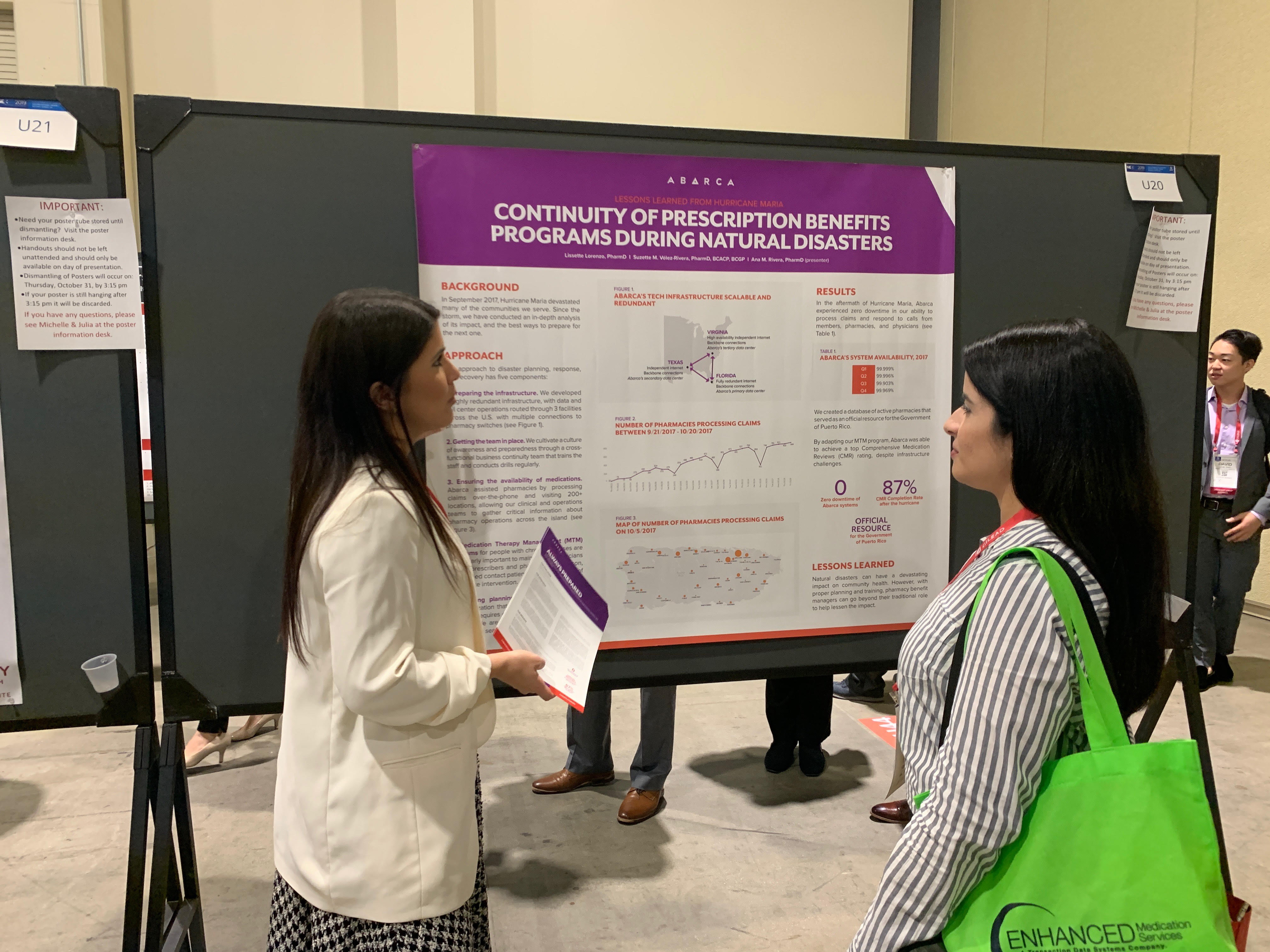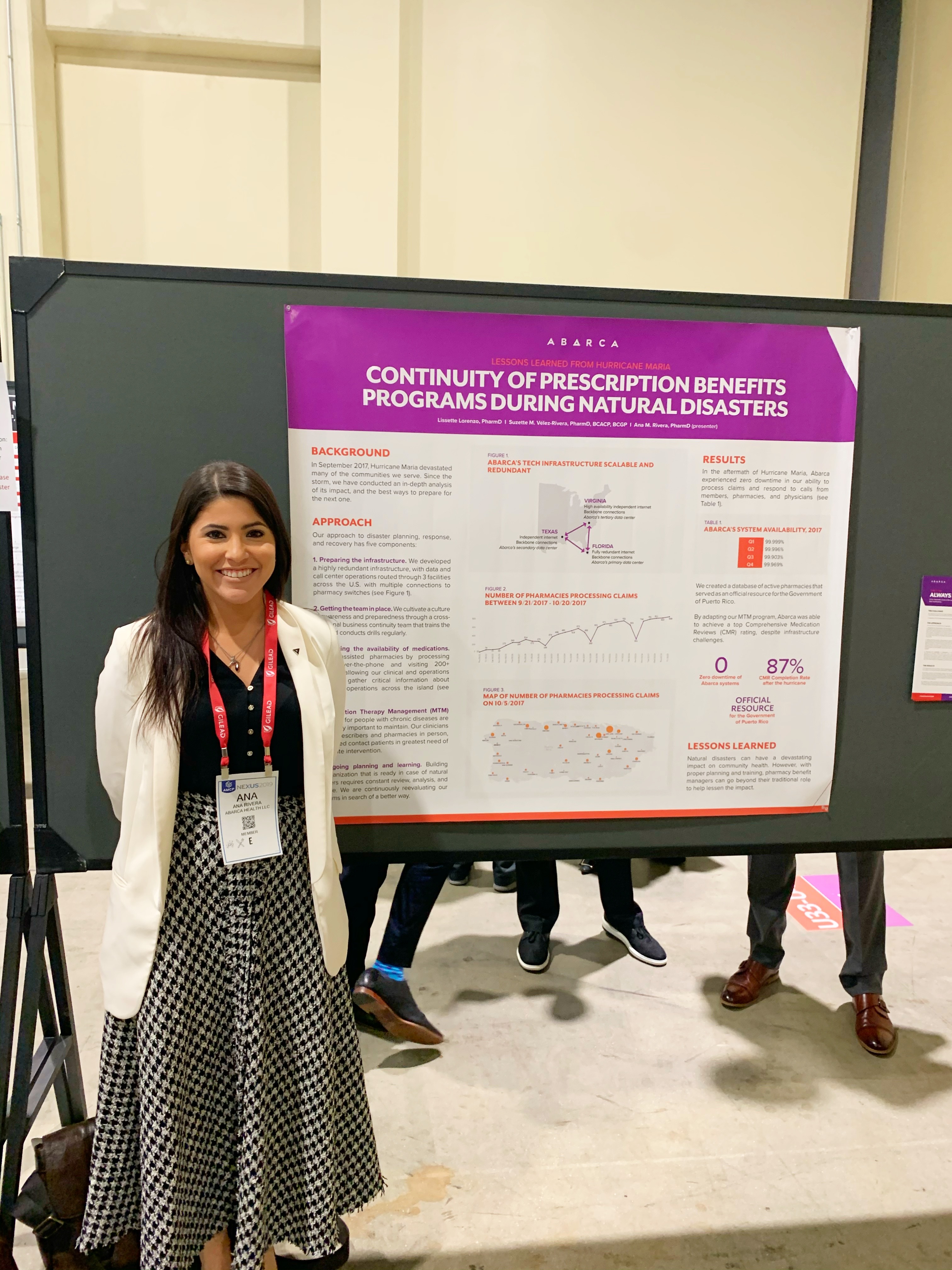Last week at the AMCP Nexus Conference, Abarca Senior Pharmacist, Ana Rivera and Suzette Velez, Director of Clinical Services, had an incredible time presenting Abarca’s unique understanding of the effect disasters have on the availability of prescription drugs, medication adherence, and community health.

In particular, Hurricane Maria left many of the communities we at Abarca serve, devastated, crippling the island’s healthcare system at levels never before experienced. Since the storm, we have conducted an in-depth analysis of the impact of these types of events, and the best way to prepare for the next one. We believe we have an obligation to our community, the pharmacies we partner with, and our peers in the industry to share our learnings.
OUR APPROACH
Today, our approach to disaster planning, response, and recovery begin with five key components:
- Preparing the infrastructure. We developed a highly redundant infrastructure with data and call center operations routed through at least three different facilities across the US.
- Getting the team in place. Being ready for natural disasters begins by cultivating a culture of awareness and preparedness. Our plan includes a timeline of activities that must take place 72, 48, and 24 hours before a storm’s anticipated landfall, and immediate actions after it hits. Although this schedule was developed with a hurricane in mind, it can be adapted for other disasters.
- Ensuring the availability of medications. In the immediate aftermath of Hurricane Maria, we assisted pharmacies in serving members by processing claims over the phone and visiting more than 200 retail locations. By deploying clinical and operations teams across the island and into the community, we were able to develop a database of which pharmacies had inventory and were ready to serve customers. This database served as an official resource for the Puerto Rican government.
- Maintaining medication therapy management (MTM) programs. Our MTM team of case managers and clinicians visited prescribers in person. Our analytics team prioritized which providers should be seen based on geography and the patients they served. We then worked with prescribers and pharmacies to identify patients in the greatest need of immediate intervention and contacted them using any available method to provide counsel and assist them in obtaining the medications they needed. By adapting our MTM programs, our principal health plan client on the island was able to maintain a CMS 5-star rating, in spite of the storm.
- Ongoing planning and learning. Building an organization and infrastructure that is ready for the devastation of natural disasters requires constant review, analysis, and practice. New resources become available, best practices from other industries emerge, and each company’s risks change over time.
LESSONS LEARNED
Natural disasters can have a devastating impact on community health, particularly among the most vulnerable populations. However, with redundant infrastructure and proper planning and training, PBMs can go beyond their traditional role of managing prescription claims to support providers, pharmacies, and government agencies and lessen the impact on communities.

At Abarca, we are continuously re-evaluating our business continuity and disaster recovery programs in search of a better way so that when a disaster does hit, we are prepared. By prioritizing member experience, we will continue to leverage our unique knowledge to provide the best possible care for our members and patients, and to assure that access, adherence, and outcomes don’t suffer in the face of the storm.
Read the full Case Study: Abarca Case Study_Continuity of Prescription Benefits Programs During Natural Disasters.